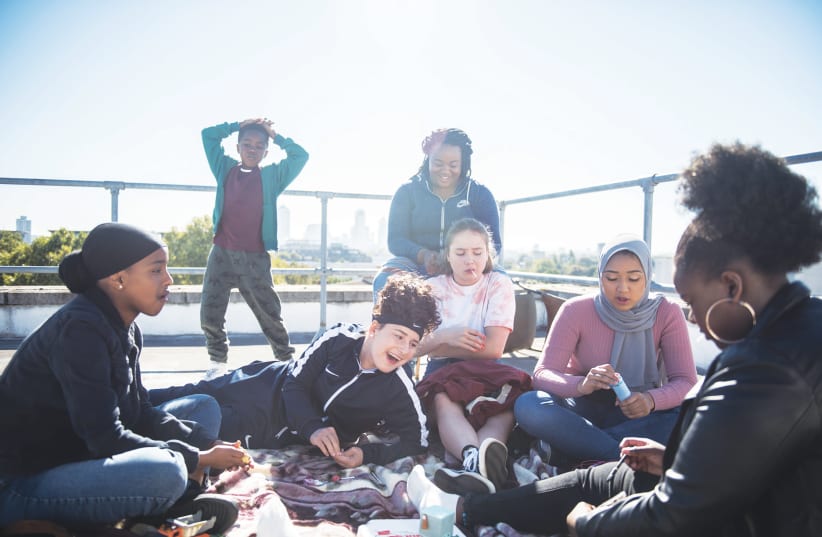The details of the in-person events are still being formulated and will be available soon on the festival website at jwff.co.il.
Screenings will be held for women victims of violence in shelters, as part of the festival’s goal to help combat violence against women at a time when several horrific cases of murder and attempted murder of women have made headlines in Israel.
The festival will open with Rocks, the latest film by Sarah Gavron, the British director best known for Suffragette starring Carey Mulligan and Meryl Streep; and Brick Lane, a drama based on the Monica Ali novel. There will be a conversation with Gavron about Rocks, which was screened at the Toronto International Film Festival and is having its Israeli premiere in this festival. It tells the story of a young teenage girl who finds herself struggling to take care of herself and her younger brother after being abandoned by their single mother, and trying to keep the secret of her mother’s disappearance from her girlfriends.
Agnieszka Holland, the director and president of the European Film Academy, will host a special artist workshop that will accompany the screening of her latest film, Charlatan. Charlatan tells the story of Jan Mikolášek, a 20th century Czech herbal healer whose great success masked the grimmest of secrets. The event will be held in collaboration with the Polish Institute in Israel and the Adam Mickiewicz Institute, which produces Polish Zoom events.
Holland is one of Europe’s leading directors whose prize-winning work includes such films as Europa, Europa, In Darkness, Spoor, Copying Beethoven and Mr. Jones. In addition, Holland has directed episodes of some of the most acclaimed television shows, including The Wire, House of Cards, The Affair and Treme.
As part of the International Program, the festival will screen films produced in the Middle East that shed light on the lives of women and communities in the countries of the region. One of these is Waterproof by Daniela König, a documentary screened at the IDFA Festival that deals with Jordanian women who train other women to fix their own plumbing problems. Some of the festival films and meetings with the creators will be available with translation to Arabic and will be screened around Jerusalem at community meetings.
The closing film of the festival will be the documentary The Wall of Shadows by Eliza Kubarska, which tells the story of a Sherpa family asked by a group of westerners to lead a trek up the never-conquered mountain in Nepal that is considered sacred. The film mixes breathtaking scenery with the family’s complex dilemma.
This year, the festival will host the 49% section for women’s rights films, and Lia Fest, in memory of Lia van Leer, founder of the Jerusalem Cinematheque.
Israeli director Keren Ben Rafael will present her latest film, The End of Love, which follows a long-distance relationship through Skype conversations, as well as her previous film, At the Beach.
The festival features a short-film program, which includes the latest film by Tom Nesher, And Now Shut Your Eyes, as well as a program of films by ultra-Orthodox women directors, along with many other events, including panels on women directors.
Festival directors Lihi Sabag, Shira Meishar and Liora Szylman said, “In recent years, the discourse in Israel and around the world around the lack of representation of female artists in the film industry has intensified. Under-representation affects the way reality is presented on the screen. We decided to create a framework that emphasizes and celebrates cinematic and quality female work, from all corners of society, in order to give a respectable stage to these films, in the belief that equal representation is a step on the path to an equal world. In Jerusalem, filmmakers from all sectors work in a complex and varied mix.”
The Jerusalem Women’s Film Festival is produced by the Jerusalem Filmmakers’ Guild, in collaboration with the Jerusalem Municipality.
